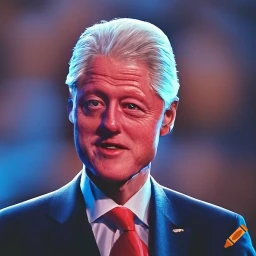Introduction: The Importance of Clinton’s Foreign Policy
Bill Clinton’s presidency from 1993 to 2001 had a significant impact on foreign policy. His approach to diplomacy, successes, challenges, and relationships with key countries shaped the global landscape during his time in office. Clinton’s foreign policy was characterized by multilateralism and engagement, as he believed in working with other nations to address global issues. This article will delve into Clinton’s foreign policy, examining his diplomatic philosophy, successes, challenges, and relationships with countries such as China, Russia, and those in the Middle East, Africa, and Latin America.
Clinton’s Approach to Diplomacy: Multilateralism and Engagement
Clinton’s diplomatic philosophy was rooted in multilateralism and engagement. He believed in working with other nations to address global challenges and sought to build strong relationships with key allies. Clinton understood the importance of international cooperation and the need for collective action to tackle issues such as terrorism, nuclear proliferation, and climate change.
One example of Clinton’s implementation of this approach was his involvement in the Dayton Accords. The Dayton Accords, signed in 1995, ended the Bosnian War and brought peace to the region. Clinton played a crucial role in brokering the agreement between the warring factions and ensuring its implementation. This demonstrated his commitment to multilateralism and his belief in the power of diplomacy to resolve conflicts.
Another example of Clinton’s engagement was his involvement in the Oslo Accords. The Oslo Accords, signed in 1993, paved the way for peace between Israel and Palestine. Clinton played a significant role in facilitating negotiations between Israeli Prime Minister Yitzhak Rabin and Palestinian leader Yasser Arafat. The accords marked a historic breakthrough in the Israeli-Palestinian conflict and demonstrated Clinton’s commitment to finding peaceful solutions through diplomacy.
The Successes of Clinton’s Foreign Policy: The Dayton Accords and the Oslo Accords
The Dayton Accords were a major success of Clinton’s foreign policy. The Bosnian War, which lasted from 1992 to 1995, resulted in the deaths of thousands of people and the displacement of millions. The Dayton Accords brought an end to the conflict and established a framework for peace in Bosnia and Herzegovina. The agreement created a multi-ethnic government, divided power between the three main ethnic groups, and established a peacekeeping force to maintain stability in the region. The Dayton Accords were a testament to Clinton’s commitment to diplomacy and his ability to bring warring factions to the negotiating table.
The Oslo Accords were another significant success of Clinton’s foreign policy. The Israeli-Palestinian conflict had been ongoing for decades, with numerous failed attempts at peace. The Oslo Accords marked a breakthrough in the peace process, as they established a framework for negotiations and laid the groundwork for a future Palestinian state. Clinton played a crucial role in facilitating the negotiations between Rabin and Arafat, and his involvement was instrumental in the signing of the accords. Although the Oslo Accords did not ultimately lead to a lasting peace, they represented a significant step forward in the Israeli-Palestinian peace process.
The Challenges of Clinton’s Foreign Policy: The Rwandan Genocide and the Balkan Wars
Despite his successes, Clinton’s foreign policy faced significant challenges, particularly in the face of humanitarian crises such as the Rwandan Genocide and the Balkan Wars.
The Rwandan Genocide, which occurred in 1994, resulted in the deaths of an estimated 800,000 people, mostly ethnic Tutsis. The international community, including the United States, failed to intervene effectively to stop the genocide. Clinton’s administration was criticized for its slow response and lack of action during the crisis. While Clinton later expressed regret for not doing more to prevent the genocide, the failure to intervene in Rwanda remains a dark chapter in his foreign policy legacy.
The Balkan Wars, which took place in the 1990s, were another major challenge for Clinton’s foreign policy. The wars, which occurred in the former Yugoslavia, resulted in widespread violence, ethnic cleansing, and the displacement of millions of people. Clinton’s administration faced difficult decisions regarding intervention in the conflict. Ultimately, the United States and NATO launched a military intervention in 1999 to stop the violence in Kosovo. While the intervention helped bring an end to the conflict, it also raised questions about the effectiveness of Clinton’s foreign policy and the use of military force.
Clinton’s Relationship with China: Engagement and Containment
Clinton’s approach to China was characterized by a combination of engagement and containment. He sought to engage with China economically and diplomatically while also containing its influence and addressing human rights concerns.
Clinton believed that engaging with China would help promote economic growth and stability in the region. He supported China’s entry into the World Trade Organization (WTO) and worked to expand trade relations between the two countries. Clinton also sought to build diplomatic ties with China, visiting the country multiple times during his presidency.
However, Clinton also took a firm stance on human rights issues in China. He criticized China’s human rights record and called for greater political freedom and respect for human rights. Clinton’s administration imposed economic sanctions on China following the Tiananmen Square massacre in 1989 and continued to pressure the Chinese government on human rights issues throughout his presidency.
One major test of Clinton’s relationship with China was the Taiwan Strait Crisis in 1996. The crisis was sparked by tensions between China and Taiwan over Taiwan’s desire for independence. Clinton responded by sending two aircraft carrier groups to the region as a show of force, signaling his commitment to defending Taiwan against any Chinese aggression. The crisis was ultimately resolved peacefully, but it highlighted the delicate balance Clinton had to maintain in his relationship with China.
Clinton’s Middle East Policy: The Oslo Accords and the Failed Camp David Summit
Clinton’s Middle East policy was heavily influenced by his involvement in the Oslo Accords and the subsequent peace process between Israel and Palestine. The Oslo Accords, signed in 1993, marked a significant breakthrough in the Israeli-Palestinian conflict and set the stage for future negotiations.
Clinton played a crucial role in facilitating the negotiations between Rabin and Arafat, and his administration provided support and resources to help implement the accords. However, despite Clinton’s efforts, the peace process ultimately faltered, and the region descended into violence and renewed conflict.
One of the major setbacks in Clinton’s Middle East policy was the failed Camp David Summit in 2000. The summit, held at Camp David in Maryland, was an attempt to reach a final status agreement between Israel and Palestine. Despite intense negotiations, the summit ended without an agreement, and violence erupted shortly afterward. The failure of the summit was a significant blow to Clinton’s efforts to achieve a lasting peace in the region.
Clinton’s Legacy in Africa: The African Growth and Opportunity Act and the Rwandan Genocide
Clinton’s foreign policy legacy in Africa is marked by both successes and failures. One of the major successes was the African Growth and Opportunity Act (AGOA), which was signed into law in 2000. AGOA aimed to promote economic development and trade between the United States and sub-Saharan Africa by providing preferential access to U.S. markets for African countries. The act has had a positive impact on African economies, promoting investment, job creation, and economic growth.
However, Clinton’s administration also faced criticism for its response to the Rwandan Genocide. As mentioned earlier, the international community, including the United States, failed to intervene effectively to stop the genocide. Clinton later expressed regret for not doing more to prevent the genocide, but the failure to act remains a stain on his foreign policy legacy in Africa.
Clinton’s Relationship with Russia: The Partnership for Peace and the Failed NATO Expansion
Clinton’s approach to Russia was characterized by a combination of engagement and containment. He sought to engage with Russia economically and diplomatically while also containing its influence and addressing security concerns.
One example of Clinton’s engagement with Russia was the Partnership for Peace program, which aimed to promote military cooperation and security dialogue between NATO and former Soviet countries. The program helped build trust and cooperation between NATO and Russia and laid the groundwork for future cooperation.
However, Clinton’s administration also pursued a policy of containment towards Russia, particularly in relation to NATO expansion. The expansion of NATO into former Soviet countries was a contentious issue, as Russia viewed it as a threat to its security. Clinton’s administration supported NATO expansion, but the process was ultimately unsuccessful, as Russia opposed the inclusion of certain countries in the alliance.
Clinton’s Legacy in Latin America: The North American Free Trade Agreement and the Failed Drug War
Clinton’s foreign policy legacy in Latin America is marked by both successes and failures. One of the major successes was the North American Free Trade Agreement (NAFTA), which was signed into law in 1994. NAFTA aimed to promote economic integration and trade between the United States, Canada, and Mexico. The agreement has had a significant impact on the region, promoting economic growth, job creation, and increased trade.
However, Clinton’s administration also faced criticism for its handling of the drug war in Latin America. The United States implemented a policy of interdiction and eradication, focusing on reducing the supply of drugs from Latin America. However, this approach had limited success and led to unintended consequences such as increased violence and human rights abuses. The failure of the drug war remains a significant challenge in Clinton’s foreign policy legacy in Latin America.
Conclusion: Clinton’s Foreign Policy in Retrospect
In conclusion, Bill Clinton’s foreign policy had a significant impact on the global landscape during his presidency. His approach to diplomacy, characterized by multilateralism and engagement, shaped his interactions with other countries and his response to global challenges. Clinton’s successes, such as the Dayton Accords and the Oslo Accords, demonstrated his ability to bring warring factions to the negotiating table and pave the way for peace. However, his foreign policy also faced significant challenges, such as the Rwandan Genocide and the Balkan Wars, which tested his administration’s ability to respond effectively to humanitarian crises. Clinton’s relationships with countries such as China, Russia, and those in the Middle East, Africa, and Latin America also shaped his foreign policy legacy. Overall, Clinton’s foreign policy was a complex mix of successes and failures, with lasting implications for the world today.




